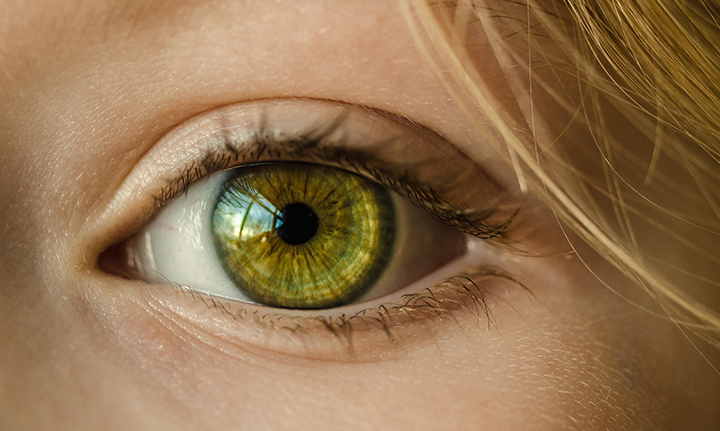For the past couple of years, many of us found ourselves spending more time at home, relying on computers, phones, or tablets. Screens have become our tools for work and toys for entertainment. Is all this screen time bad for our eye health? We did some research, and the short answer is yes. Since our eyesight is probably the most important of our five senses, let’s not turn a blind eye to eye health. Here are some tips and suggestions.
1. Distance – Keep your screen about an arm’s length or 25 inches away from your eyes – your eyes work harder when the screen is close to your face. Also, the angle of the screen should have you looking slightly downward.
2. Adjust lighting – Most screens have a brightness adjustment. Your screen shouldn’t be brighter than the surrounding light, or your eyes will have to work harder to see. Adjust your room lighting or your screen lighting and increase the contrast on your screen to reduce eye strain.
3. Give your eyes a break – The American Ophthalmological Society recommends using the 20-20-20 rule to reduce eye strain. Take a break every 20 minutes by looking at an object 20 feet away for 20 seconds. This gives your eyes a break and allows them to refocus.
Eye health goes hand-in-hand with general health, but a few nutrients are especially important for your eyes.
Here are 5 nutrients that benefit your eyes:
1. Vitamin A – The richest dietary sources include liver, egg yolks, and dairy products. Provitamin A carotenoids provide around 30% of people’s vitamin A requirements, on average. The most efficient of them is beta-carotene, which is found in high amounts in kale, spinach, and carrots.
2. Lutein and zeaxanthin are yellow carotenoid antioxidants known as macular pigments.
They are concentrated in the macula, the central part of your retina, which is a layer of light-sensitive.
Lutein and zeaxanthin usually occur together in foods. Spinach, Swiss chard, kale, parsley, pistachios, and green peas are among the best sources.
Egg yolks, sweet corn, and red grapes may also be high in lutein and zeaxanthin. In fact, egg yolks are considered one of the best sources due to their high fat content.
Carotenoids are better absorbed when eaten with fat, so it’s best to add some avocado or healthy oils to your leafy vegetable salad cells on the back wall of your eyeball. Lutein and zeaxanthin function as a natural sunblock.
3. Omega-3 Fatty Acids – DHA is found in high amounts in your retina, where it may help maintain eye function and also prevent eye diseases. The best dietary source of Omega 3 is oily fish. Fortunately, omega-3 supplements derived from fish or microalgae are widely available.
4. Vitamin C – Our eyes require high amounts of antioxidants — more so than many other organs, and the antioxidant vitamin C appears to be especially important.
High amounts of vitamin C are found in many fruits and vegetables, including bell peppers, citrus fruits, guavas, kale, and broccoli.
5. Vitamin E is a group of fat-soluble antioxidants that protect fatty acids from harmful oxidation. Since our retina has a high concentration of fatty acids, adequate vitamin E intake is important for optimal eye health. The best dietary sources of vitamin E include almonds, sunflower seeds, and vegetable oils like flaxseed oil.
Here are links to studies to learn more:
https://www.ncbi.nlm.nih.gov/pmc/articles/PMC3936686/
https://pubmed.ncbi.nlm.nih.gov/11880589/
https://pubmed.ncbi.nlm.nih.gov/27817918/
https://pubmed.ncbi.nlm.nih.gov/1914507/
https://pubmed.ncbi.nlm.nih.gov/15555528/
https://nutritiondata.self.com/foods-000103000000000000000-w.html
My Indigo Sun team




